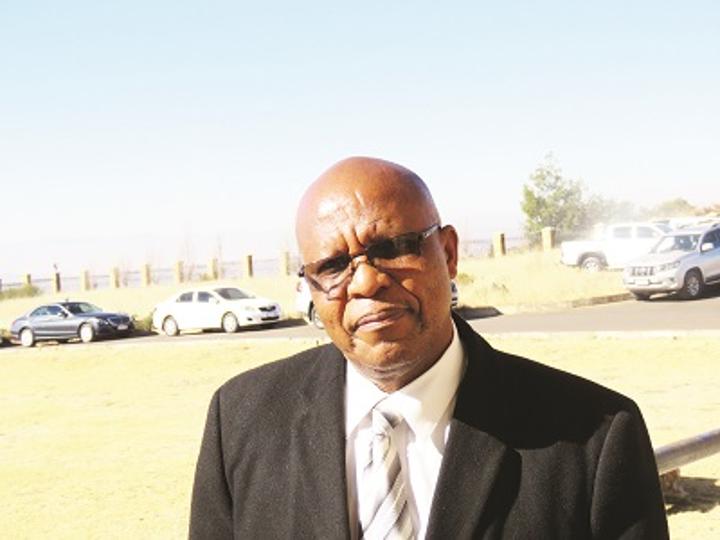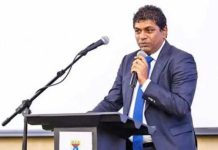Africa-Press – Lesotho. The general amnesty’ could finally see the light of the day. This is after the National Assembly welcomed the first reading of the National Peace and
Unity Bill, 2021 in preparatory of the National Peace and Unity Commission on Friday. The members of the Commission will be appointed by the Prime Minister acting upon
recommendations from the selection panel. It will be formed of the Chairperson, Vice-Chairperson, one Commissioner and the prosecuting officer who is trained
in law. The bill was tabled by the acting Minister of Law and Justice Advocate Lekhetho Rakuane. This bill is “an act to make provision for the establishment of a National Peace and
Unity Commission for the purpose of building sustainable national peace, security, stability, unity and social cohesion by creating an opportunity for
both victims and perpetrators of gross human rights violations to reach healing and reconciliation; the empowerment of the Commission to hear evidence in a
comprehensive manner to determine the truth about gross violations of human rights emanating from acts, omissions or offences associated with political
conflicts or motives committed in Lesotho; to grant reparations to victims and amnesty to persons who make full disclosure of all relevant information of
their wrong doings; and for related matters. ” The public opinions contained in the Multi-stakeholder National Dialogue Plenary II Report talks of the establishment of “an all-encompassing Transitional Justice
Commission (TJC)” which is believed to be “suitable to Lesotho’s context to address incidents of human rights violations and injustices, with a focus on reconciliation,
peacebuilding, reparation, compensation without compromising justice and impunity, to address all things that have turned Basotho nation against each other”.
The TJC is to be “a balance between amnesty and prosecution”. The bill is envisaged to amongst others: “promote national healing, well-being and lasting eternal peace; ensure amicable and equitable justice for all; establish
and promote effective mechanisms for restoring and strengthening the well-being and national unity; sensitise, mobilise and champion the campaign for national
peace and stability; hear gross human rights violations, political offences and other related matters; facilitate the granting of amnesty to persons who make
full disclosure of all relevant facts relating to gross human rights violations and political offences and compile the report providing a comprehensive account of the activities, findings of the
Commission recommendations of measures to prevent the future violations [of] political offences”. When established, the Commission will have witnesses who will furnish it with the
evidence and it “may” also consider applications of the incarcerated people and the courts “temporarily halt” hearing such case of the accused person who is
appearing before the Commission once their application to testify before it has been accepted. The Commission will hear evidence from aggrieved persons, alleged perpetrators, an
association acting in its members’ interests amongst others and it will recommend punitive measures. It will also be empowered to grant amnesty “if it is satisfied that the witness
testified truthfully and in full; the nature and manner of carrying out the violation was not grossly inhumane [and] the witness has shown remorse and has
undertaken not to commit the act again” and in the case where it will not grant amnesty, the case of such a person who is declined amnesty will resume before
the courts. Reacting to these developments, the local Political Scientist Nthakeng Phehello Selinyane took aim into the proposed Commission saying “[those pushing for it
have] denied justice for the victims of their acts until they were charged”. “This commission cannot usurp the powers of the courts when it is not constitutionally constituted as a court.
Even courts don’t snatch cases from one another’s mouth or hands. It pretends to bullishly push aside the established courts in the name of restorative justice, while avoiding to explicitly
invoke that principle. “It cannot say that name because restorative justice principles require that from the onset even its establishment must have victims aboard, and that it must be
bound to take them aboard in its decisions. Now it’s neither a proper court nor a proper restorative justice commission, but a nude highway robbery of national
justice and victims’ dignity; and for that it must be condemned in the strongest of terms,” he opined. Following the Southern Africa Community Development (SADC) 2016 commission findings which
investigated among others the unrests and killings committed allegedly by the members of the disciplined forces, the government had acted on those recommendations which saw the members of the Lesotho Defence Force (LDF) and
Lesotho Mounted Police Service (LPMS) currently tried and behind bars. The cases relate also to political unrests in 2014 which resulted in the death of
members of LMPS and the former army Commander Lieutenant General Maaparankoe Mahao who is allegedly killed by his colleagues in 2016. The Commission will submit its report to the Prime Minister who will in turn table
such report before the parliament. It is expected that the bill will be referred to the Law and Public Safety portfolio committee for further scrutiny after which the committee will table the report for its findings and recommendations before the house.
For More News And Analysis About Lesotho Follow Africa-Press






